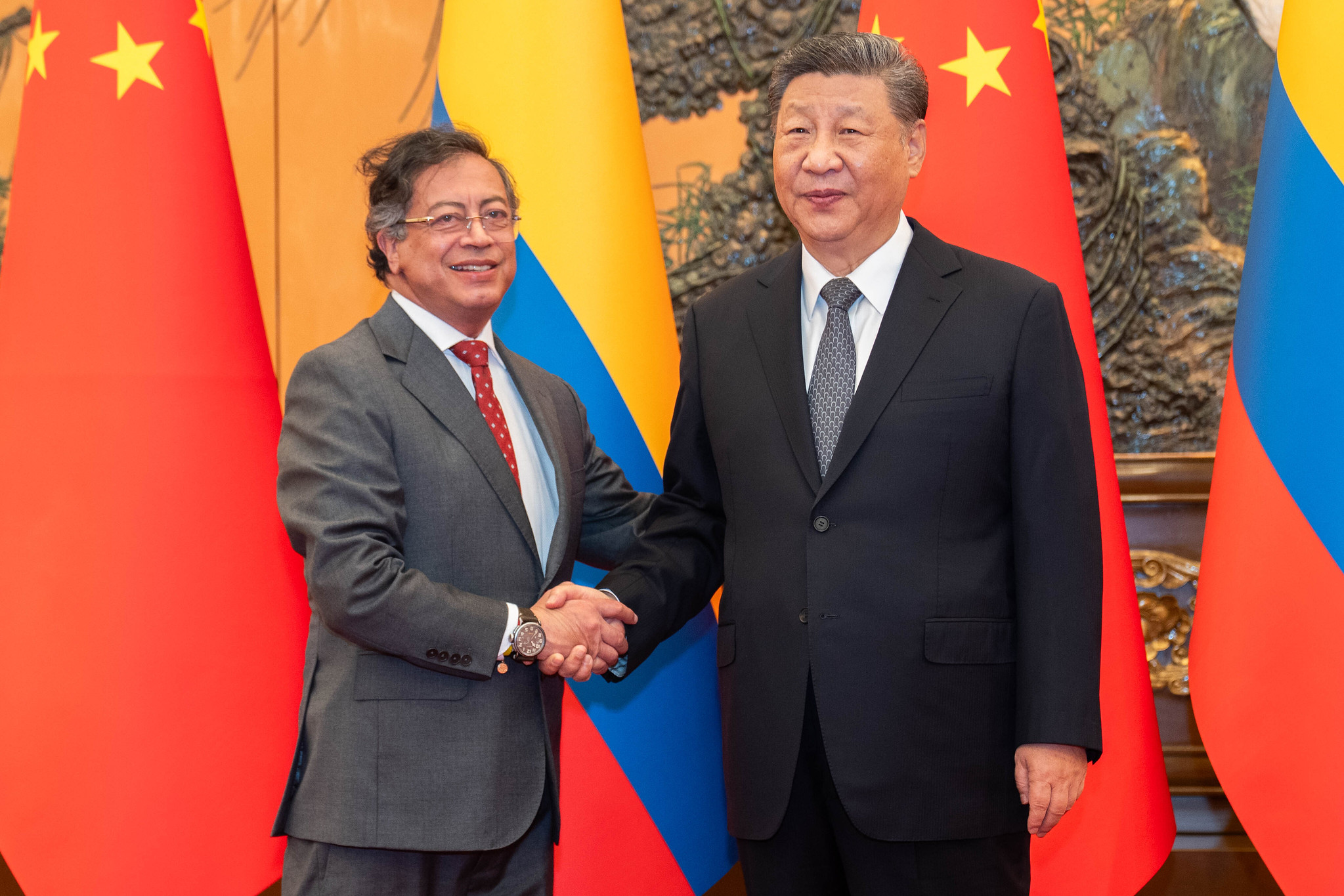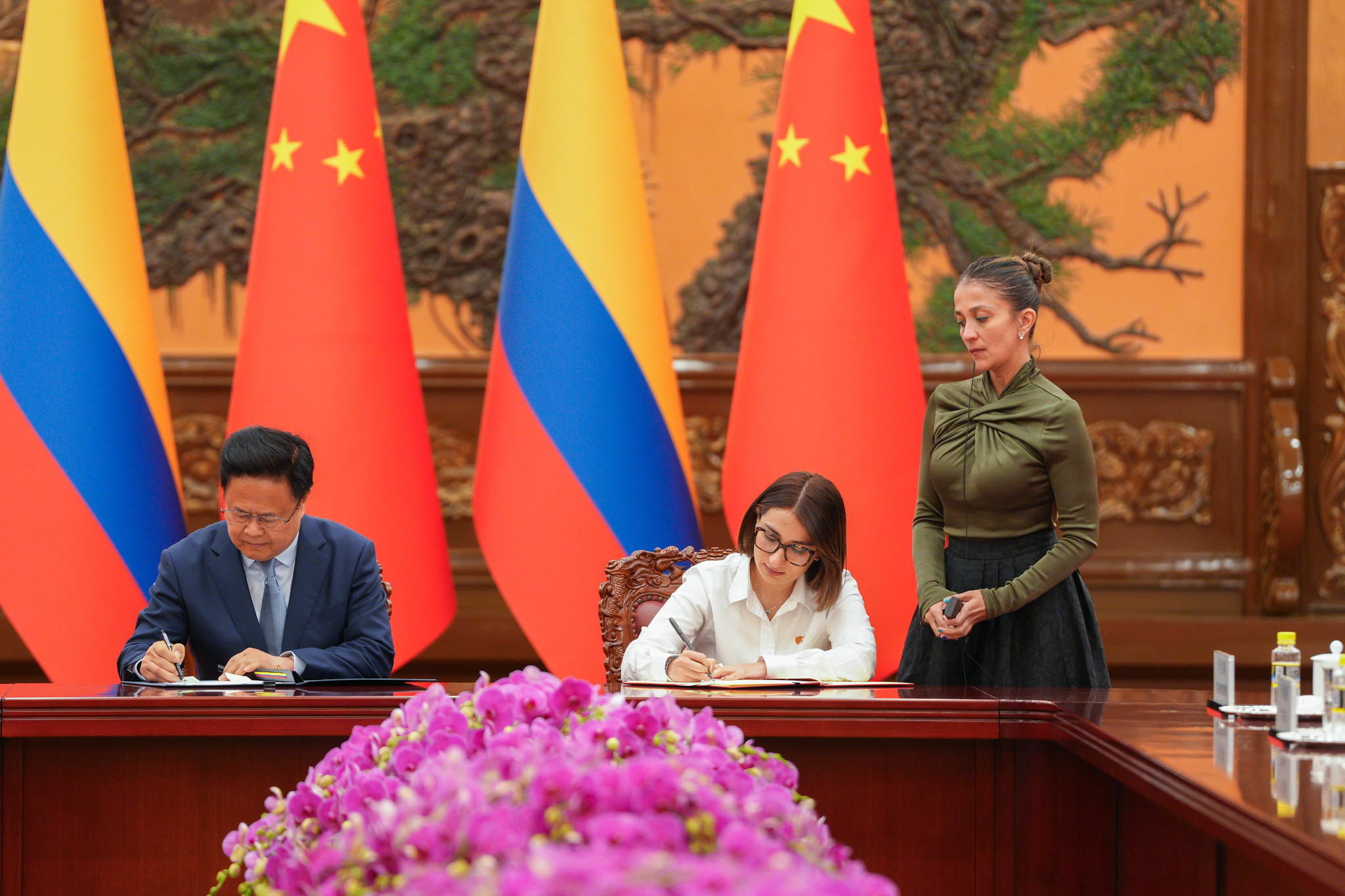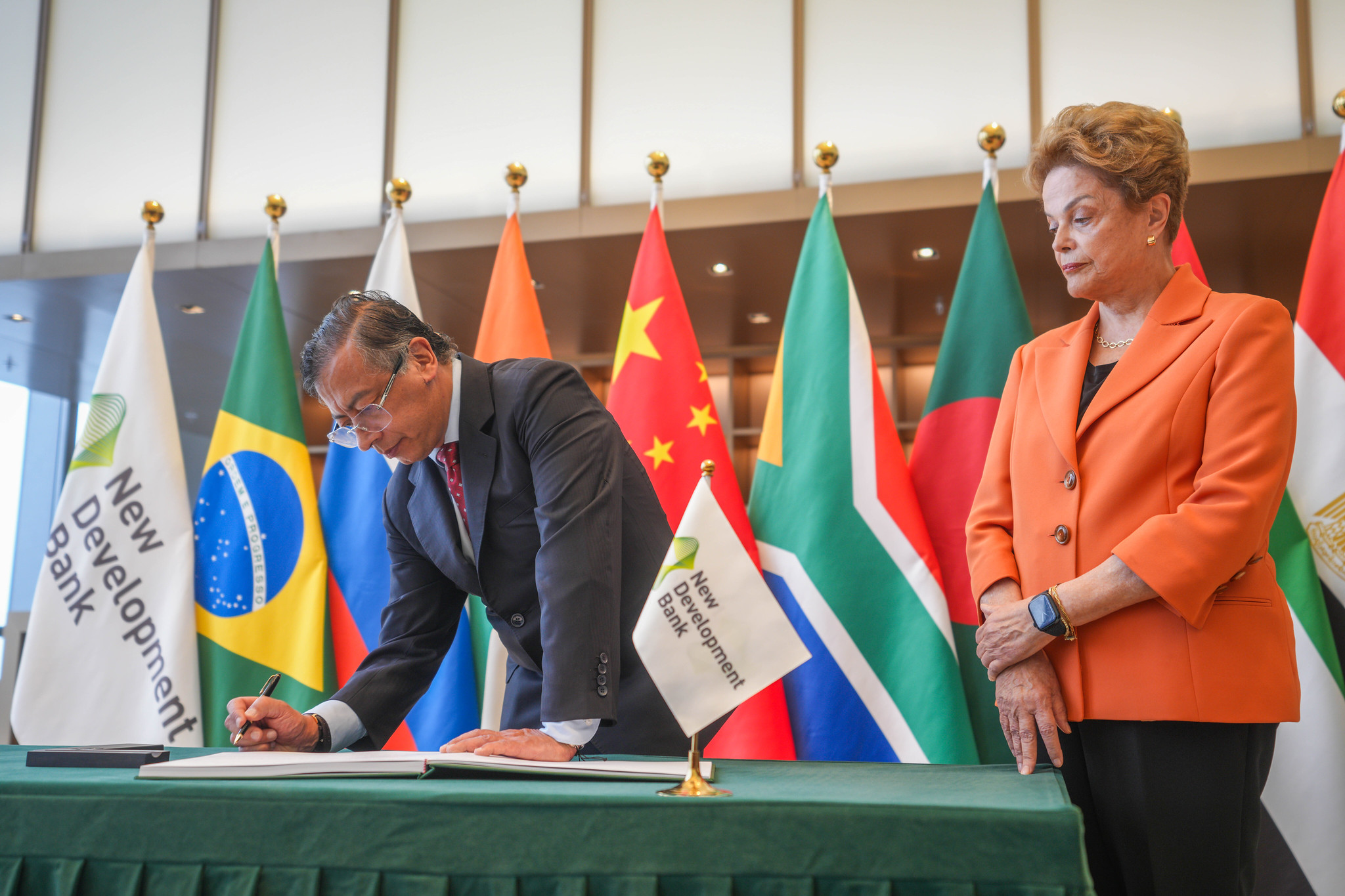With his adherence to the Silk Road and his application to join the BRICS Bank, President Petro concludes his tour of China.

President Gustavo Petro concluded his second tour of China this Friday, where he signed the Silk Road cooperation plan. Colombia formalized its adhesion to the Belt and Road Initiative and submitted an application for admission to the New Development Bank (NDB), the financial institution created by the countries that make up the BRICS bloc (Brazil, Russia, India, China, and South Africa).
During his visit to the Asian giant, during which he also served as pro tempore president of the Community of Latin American and Caribbean States (CELAC), Petro met with Chinese President Xi Jinping, who, after the meeting, announced five cooperation programs with the organization and a loan of 66 billion yuan (35.6 trillion Colombian pesos) to boost development in the bloc's member countries.
However, the government's decisions were not without criticism. The signing of the memorandum of understanding confirming the country's adherence to the Silk Road, through which the government seeks to reduce Colombia's nearly $14 billion trade deficit with the Asian giant in the short term, generated an immediate reaction from the United States.

President Gustavo Petro with his counterpart Xi Jinping. Photo: Juan Diego Cano. Presidency
The U.S. State Department described the decision as "counterproductive and disappointing." Furthermore, the federal agency stated that it will veto "recent projects and upcoming disbursements by the IDB and other international financial institutions for state-owned and Chinese-controlled companies in Colombia" and "in other countries in the region," raising doubts about the financing of projects such as the Bogotá Metro.
Through his official X account, President Petro responded: “I think it’s right that US-funded banks not finance projects that fall under their purview. My government will respect that principle.”
Regarding the agreement, it is important to mention that it does not generate legal obligations and expressly states that it will not be used as a basis for international claims or for the interpretation of other treaties. Among the specific objectives of the agreement —the memorandum of understanding signed between the two governments defines 11 thematic areas— it specifically addresses cooperation in infrastructure, trade, technology transfer, innovation, and clean energy.

Foreign Minister Laura Sarabia at the signing of the memorandum of understanding with China. Photo: Juan Diego Cano
It's worth mentioning that, although China has gained ground as Colombia's trading partner, it is still far from reaching the level of trade enjoyed with the United States. In 2024, Colombian exports to the Asian country totaled $2.377 billion, compared to imports of $15.936 billion, leaving a negative trade balance of over $13.5 billion, according to Analdex figures.
Application for admission to the BRICS Bank The request was presented in Shanghai following a meeting between the Colombian president and Dilma Rousseff, current president of the multilateral bank and former president of Brazil. According to the head of state, the purpose of this initiative is to seek financial alternatives to traditional institutions such as the International Monetary Fund (IMF) and the World Bank.
The letter of intent was signed by Finance Minister Germán Ávila Plazas, who confirmed that Colombia aims to become a borrowing member of the NDB. This means that, if approved, the country could access loans to finance infrastructure, health, renewable energy, and sustainable development projects.

President Gustavo Petro signed the application to join the New Development Bank. Photo: Juan Diego Cano. Office of the President
In the application letter for membership, Minister Ávila indicated that Colombia is willing to subscribe for 5,125 shares of the bank's authorized capital, equivalent to a financial commitment of $512.5 million. Of this amount, the Colombian government indicated that $410 million corresponds to callable capital (which serves as collateral) and $102.5 million to paid-in capital, i.e., cash. The first disbursement would be made within six months of the signing of the membership agreement.
"Joining this entity would allow Colombia to access loans with favorable terms and strengthen its response capacity to challenges such as climate change and global economic crises," the Presidency said in a statement released early Friday morning.
President Petro's foreign tour will continue in Rome, where he will seek to meet with Pope Leo XIV. In his absence, Health Minister Guillermo Alfonso Jaramillo will perform presidential duties.
CAMILO A. CASTILLOPolitical EditorX: (@camiloandres894)
eltiempo





